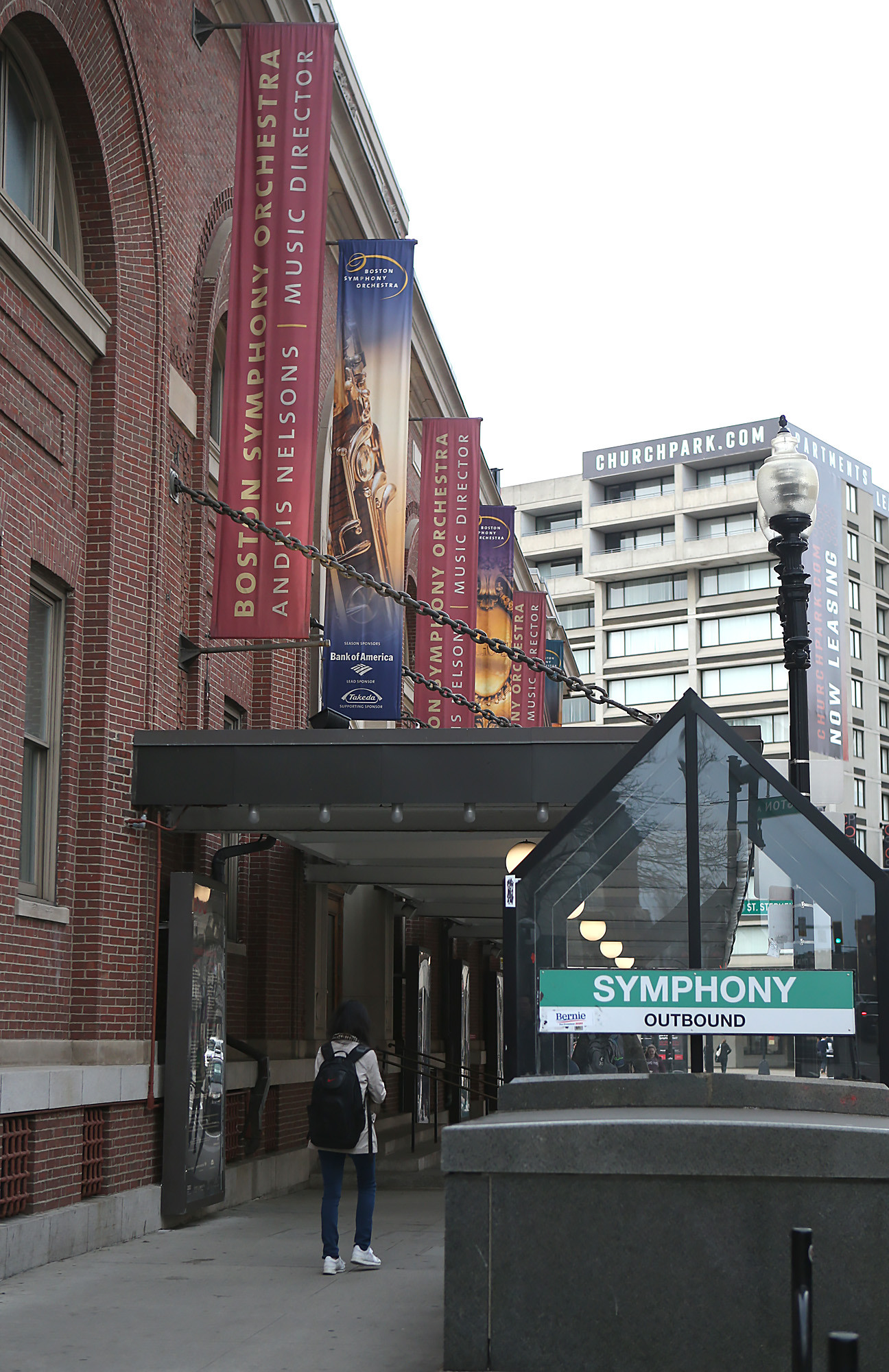
Delayed MBTA renovation project will cost much more than estimated: Construction Industries of Massachusetts
Stop us if you’ve heard this before about the MBTA: Running late and costing more.
A T project to upgrade Boston’s Symphony station is way behind schedule and will likely cost significantly more than expected, according to the Construction Industries of Massachusetts, an industry trade association.
When the MBTA two years ago received $66 million from the feds to overhaul the 80-year-old station on the Green Line’s E branch, the T planned for station work to start this year.
However, the bidding process has gone sideways and a contract hasn’t been awarded yet, Construction Industries of Massachusetts recently wrote to MBTA GM Phillip Eng.
The group also wrote in the letter obtained by the Herald that the project will end up having a much higher price tag down the line.
“On behalf of the members of Construction Industries of Massachusetts (CIM), I am writing to express our serious concerns regarding the MBTA’s procurement of the accessibility improvements and related work at Symphony Station,” Jeff Mahoney, CIM’s executive director, wrote to the MBTA GM.
“The MBTA has set aside decades of established practice by rejecting a traditional low-bid design-bid-build procurement method in favor of re-advertising the same project, with no change in scope, using construction management at risk (CMAR), a delivery method the MBTA had previously employed just three times in 20 years and never on a transit station,” Mahoney added.
The state Office of the Inspector General defines CMAR as a method that “uses a two-phase selection process to contract with a construction manager who will also serve as the project’s general contractor. The contract is a cost plus fixed fee contract with a guaranteed maximum price.”
In April, the MBTA advertised the multi-year renovation project at Symphony Station, which includes the construction of raised boarding platforms and street-level improvements, including bike lanes. The MBTA’s office estimated that the work would be $70.9 million, and it would be a design-bid-build procurement.
Then two firms submitted bids, and the low bid came in at $119.9 million — nearly $50 million more than estimated. The MBTA ended up rejecting the bid, and re-advertised the Symphony project using the $70.9 million estimate. This time, it would be a construction management at risk procurement.
“It is unclear what benefits will be achieved by re-advertising the project under the CMAR provisions of chapter 149A,” Mahoney wrote. “The project is fully designed and has not been re-engineered.
“There is nothing to be gained with respect to constructability, and re-bidding Symphony Station has prolonged the completion date of a priority ADA project by nearly a year to the summer of 2028,” he added. “Moreover, the delay is likely to increase the cost of labor and materials.”
Related Articles
MBTA announces $472M federal grant for North Station bridge, launches safety initiative to decrease track accidents
Boston Mayor Wu rescinds Summer Street bus lane that wasn’t working ‘as intended’ in bustling Seaport
MBTA has major delays due to power issues; T to launch low-income reduced fare program
MBTA Board approves 545 housing units near Riverside station in Newton
Red Line to remained closed for week of repair work
Mahoney also said that the CMAR procurement method leads to a more expensive price down the road.
The total cost is negotiated well after construction begins, he wrote.
“In this sense, construction manager ‘at risk’ is a total misnomer, as the final price is not settled until the project is well underway and unknown variables are whittled down,” Mahoney added. “This provides far less price certainty to the project owner at the time of award… In summary, the Design-Bid-Build contractor commits to a price prior to any work beginning; the CMAR Manager does not commit to a price until — typically — over 50% of the project is complete.”
The executive director of the Construction Industries of Massachusetts also noted the safety concerns over the certification level of potential contractors.
The MBTA in response to the letter said the T regularly meets with the Construction Industries of Massachusetts to share information, ideas and provide updates on programs.
“Making Symphony Station fully accessible to all transit users is a top priority, and the CMAR approach enables the MBTA to work closely with the contractor to track, monitor, and preserve the overarching project scope and budget that’s aligned with current market conditions,” an MBTA spokesperson said in a statement.
“This project delivery method and collaboration will help the MBTA meet the project’s objectives, and the MBTA welcomes members of CIM to bid on this important Green Line accessibility project,” the T spokesperson added.
Improvements to the 80-year-old station will include raised platforms for easier boarding of trains, four new elevators, accessible bathrooms, improved lighting and new wayfinding signage.
The $66 million in federal funding for the Symphony station, located at the intersection of Massachusetts Avenue and Huntington Avenue, was part of a program to improve accessibility at rail stations across the country.


